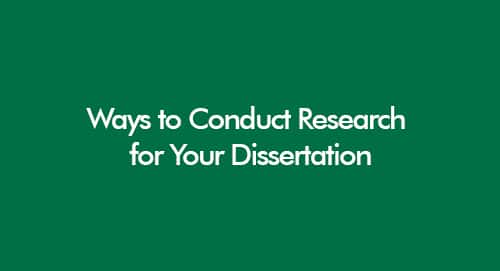
How to Write a Confident Conclusion for a Report: A Guide
October 27, 2022
Effective Tips for Swift Student Assignment Help in the UK
November 14, 2022When writing a research paper, the discussion section emerges as a critical aspect of the assignment. It is imperative to grasp the art of writing an impactful discussion, as this segment serves as the platform to elucidate how your data substantiates or challenges your hypotheses.
Explore New Dissertation Topics Here
Learn More About Current Dissertation Examples Here
To write an effective discussion, you must know how to write a discussion in a research paper and present your data clearly and concisely. It must carefully elucidate that the collected data and its findings align with or challenge the hypotheses.
What is a Discussion Section?
The discussion section in a research paper is a crucial part where the researcher interprets and analyzes the results obtained from the study. It is a space where the researcher can explain the significance and implications of the findings in relation to the research questions or hypotheses. The discussion section allows the researcher to understand the data better, identify patterns or trends, and compare the results with existing literature or theories.
Discover Dissertation Discussion Examples Here
What Should be Included in Your Discussion Section?
The discussion section traditionally includes the following:
- A description of the findings.
- An interpretation of the findings of other studies.
- An evaluation of the findings.
- The implications of the results/findings for future research or practice.
Explore More on the Topic of How to Write the Result Section
1- A Description of the Findings
The primary step in writing the discussion section involves comprehensively describing the research findings. This encompasses both quantitative and qualitative data presented in a clear and succinct manner. It is important to note that this description should solely focus on presenting the findings without engaging in any interpretation or evaluation. This step involves presenting a factual account of what was discovered during the research process.
2- The Interpretation of the Findings
The interpretation of findings is the stage where you delve into the significance of the data in relation to other studies conducted on the same topic. Here, you initiate the process of drawing conclusions from your research. Supporting your interpretation with compelling evidence from your data is crucial.
3- The Evaluation of Findings
The evaluation phase entails a comprehensive assessment of whether the research successfully achieved its objectives. This involves identifying any limitations that might have influenced the results and discussing their impact. Examining any unexpected findings and establishing their relevance to the research objectives is crucial.
4- Implications for Future Research
In the final stage, it is vital to delve into the implications of the findings for future research or practice. This entails highlighting recommendations for further research that may be deemed necessary and examining how the results can be applied in real-world scenarios. It is essential to support any recommendations with concrete evidence derived from your data, thus reinforcing their validity and relevance.
Tips On How To Write Discussion in Research Paper?
The following tips will help you in writing an expert discussion section for your research paper:
1- Start with a Concise Introduction
Begin the discussion section with a brief introduction that provides context and sets the stage for the subsequent analysis. Clearly state the purpose of the section and outline the key points you will address.
2-Organize Your Discussion Logically
Structure your discussion in a logical and coherent manner. Consider using subheadings to divide the section into smaller, focused topics. This enhances readability and helps readers navigate through your arguments.
3- Describe the Findings Objectively
Start by objectively describing and presenting your findings clearly and concisely. Focus on facts and avoid interpretation or evaluation at this stage. Provide sufficient detail to allow readers to grasp the essence of your results.
4- Relate Findings to Research Objectives
Connect your findings to the research objectives or research questions established earlier in your paper. Explain how each finding contributes to answering the research questions or achieving the research goals.
5- Analyze and Interpret the Findings
After presenting the findings, delve into their interpretation and analysis. Analyze the patterns, trends, and relationships observed in the data. Interpret the results in the context of existing literature, theories, or hypotheses.
6- Address Unexpected or Contradictory Findings
If you encounter unexpected or contradictory results, acknowledge and discuss them. Explore potential explanations, alternative perspectives, or limitations that might have influenced these findings. Be open to considering different angles and providing a balanced analysis.
7- Discuss the Implications and Significance
Evaluate the implications and significance of your findings. Discuss the broader implications for the research field, practical applications, or theoretical advancements. Highlight your research's value and contributions to the existing body of knowledge.
8- Consider Limitations and Alternative Explanations
Address any limitations or constraints of your study that may have influenced the findings. Acknowledge the potential impact of these limitations on the interpretation and generalizability of the results. Discuss alternative explanations or factors that could have influenced the outcomes.
9- Propose Recommendations for Further Research
Identify areas that require further investigation and propose recommendations for future research. Highlight the gaps or unanswered questions revealed by your study. Provide a rationale for why these areas merit further exploration.
10- Conclude with a Summary
Summarize the main points discussed in the section, reinforcing the key findings, interpretations, and implications. Emphasize the overall significance of your research and its contribution to the field.
Learn About Writing Discussions for Academic Reports Here
How Does a Discussion Section Vary from a Conclusion?
There is a difference between a discussion section and a conclusion. In many ways, a discussion section is similar to a conclusion. Both are typically found at the end of the piece, and both provide a summary of the main points that have been presented. However, some important distinctions exist between a discussion section and a conclusion.
Perhaps most importantly, a discussion section is typically much longer than a conclusion. Whereas a conclusion maybe just a few sentences long, a discussion section may be several paragraphs or even pages in length.
In addition, whereas a conclusion will simply restate the main points that have been made, a discussion will provide further analysis and interpretation of key findings. It is often seen as being more intellectually demanding than a conclusion.
Learn More About a Step-by-Step Guide in the Discussion Section
Finally, whereas a conclusion will typically focus on what has been learned from the main body of the text, a discussion section will typically focus on future research directions or potential implications. For all these reasons, it is essential to understand the difference between a discussion section and a conclusion before writing either one.
- A discussion section is typically found in scientific papers.
- The purpose of a discussion section is to interpret and draw conclusions from the data presented in the paper.
- A discussion section should be objective and unbiased.
- A conclusion is typically found in papers that are not scientific in nature.
- The primary purpose of a conclusion is to summarize the paper's main points.
- A conclusion should be objective and unbiased.
- A discussion section is usually longer than a conclusion.
- A discussion section typically contains more detailed information than a conclusion.
- A discussion section often includes conflicting interpretations of the data presented in the paper.
- A conclusion typically contains a single interpretation of the data presented in the paper.
Common Mistakes to Avoid in a Discussion
1. Restating Your Results
One mistake often made in a discussion section is simply restating the study's results. While it is important to mention your results briefly, the discussion section should be focused on interpretation and implications, not just a regurgitation of data. Instead of just repeating what you found, discuss why you found it and what it means in relation to previous research.
2. Making Over-Generalizations
Another mistake to avoid is making over-generalizations about your findings. Just because you found something true in your study does not mean it is universally true. Be cautious about extrapolating too much from your data and making claims that are not supported by the evidence.
3. Failing to Critique Your Study
A discussion section is also an opportunity to reflect on the shortcomings of your study and suggest ways that future research could be improved. Don't be afraid to point out any limitations of your study or areas where more research is needed. By acknowledging the weaknesses of your study, you can make your findings more valuable.
4. Failing to Summarize the Main Points of the Paper
Before engaging in a meaningful discussion of the data, you must summarise the paper's main points. This will remind the reader of what they have just read and help them follow along with your discussion. Include a brief overview of the research question, hypothesis, methodology, results, and conclusion.
5. Repeating Information from Other Sections of the Paper
Once you have summarized the paper's main points, you can discuss the implications of your findings. However, it is important to avoid repeating information from other paper sections. For example, there is no need to reiterate your results or conclusions here. Instead, focus on providing new insights and interpretations based on your data analysis.
6. Making Assumptions about the Reader's Knowledge
When writing a discussion section, it is important to assume that your reader has not read the entire paper. As such, you must provide enough context to interpret the data without repeating information from other sections. Be sure to explain any jargon or terminology unfamiliar to your reader.
7. Failing to Make Connections to Other Areas of Study
An effective discussion section will go beyond simply summarizing your findings and will make connections to other areas of study. For example, if you discuss the implications of your findings for future research, connect your work to the existing literature in the field. This will help situate your work within the larger conversation that is taking place in academia.
Explore Our Report-Writing Services Here
Conclusion
Writing a discussion section can be tough, but if you follow these simple steps, you can write an effective discussion section that engages your reader and presents your findings clearly and concisely.
Learning how to write a discussion in a research paper will require consistent practice.
Contact Premier Dissertations to develop a discussion section with a strong stance regarding your research. We can assist you with every process step, from topic selection to data analysis in a dissertation. Contact us today to learn more about how we can help you achieve academic success!
Explore other topics related to how to write a discussion in a research paper.
Get 3+ Free Dissertation Topics within 24 hours?



























